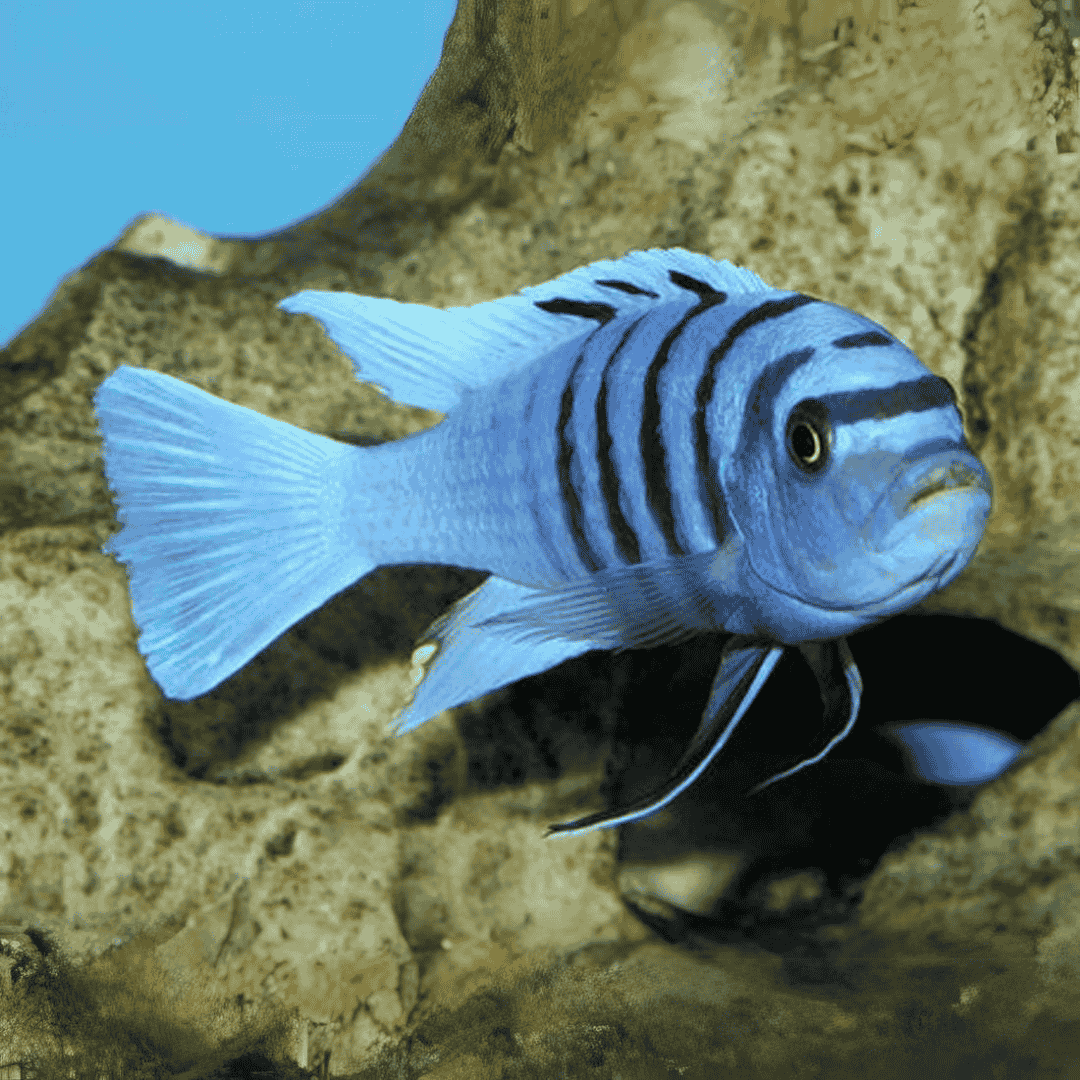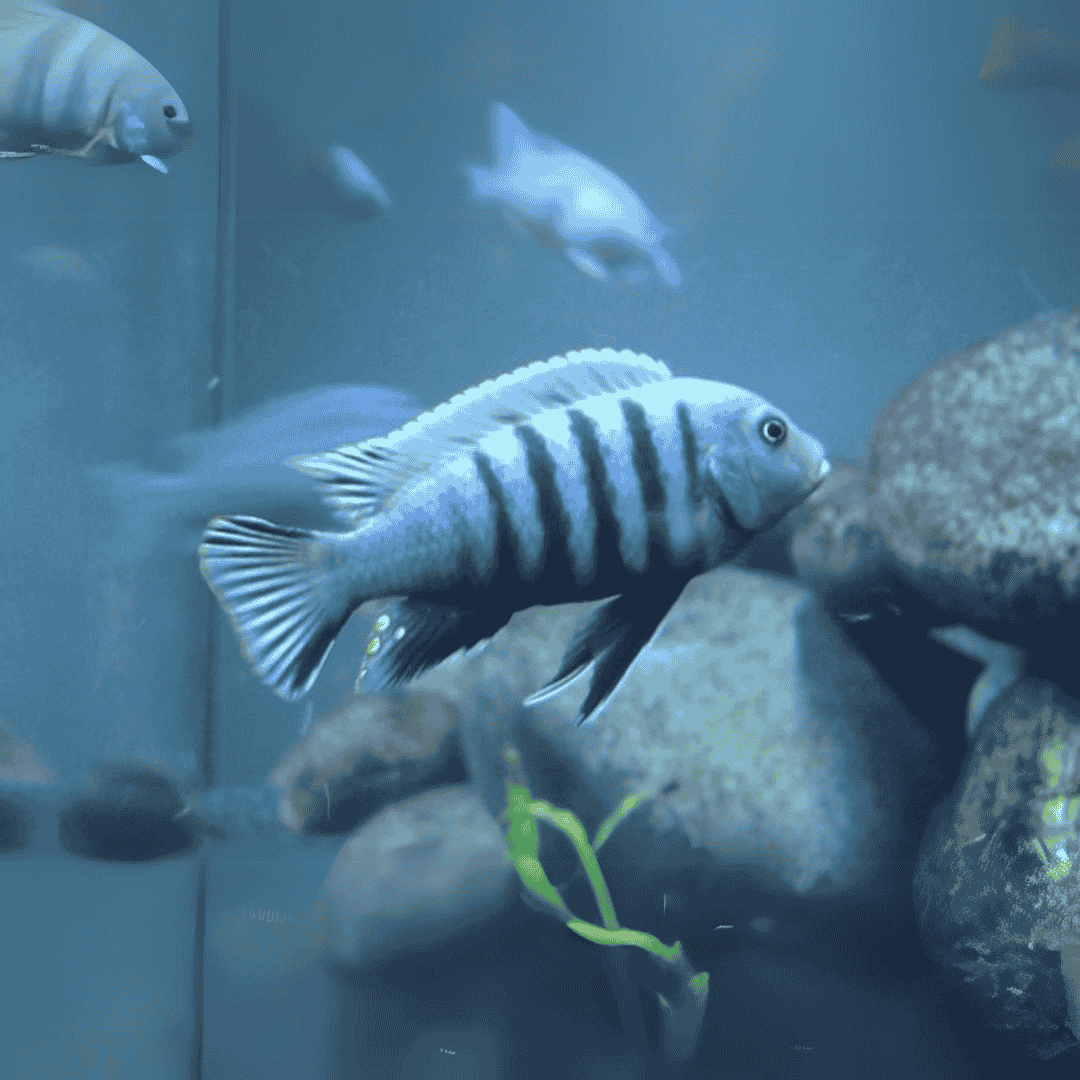Malawi Mbuna Cichlid Dogtooth (Size 2"to 2.5") | Single
Malawi Mbuna Cichlid Dogtooth (Size 2"to 2.5") | Single is backordered and will ship as soon as it is back in stock.
Couldn't load pickup availability
Description
Description
The Malawi Mbuna Cichlid Dogtooth (2" to 2.5") is a striking and energetic species from Lake Malawi. This particular cichlid gets its name from the sharp, canine-like teeth it possesses, which are used for scraping algae off rocks in the wild. At 2" to 2.5", this fish is still in its juvenile stage, though its vibrant colors and active nature are already visible. Males tend to display more vivid colors, usually a bright blue or blue-green body with darker vertical stripes, while females may have more subdued tones.
Behavior and Temperament: The Dogtooth Mbuna, like most Mbuna cichlids, is territorial and aggressive, especially as it matures. Males are more aggressive than females and will often defend their territory vigorously. At this size, juveniles are starting to establish small territories within the tank, and their behavior will become more territorial as they grow. It's important to provide adequate hiding spaces and visual barriers in the tank to reduce aggression.
Tank Size: A minimum of 227 litres is recommended to provide sufficient space for the Dogtooth Mbuna to establish territories and reduce aggressive behavior.
Aquascape: These cichlids thrive in tanks with plenty of rocks, caves, and crevices, mimicking their natural habitat in Lake Malawi. They enjoy swimming through rock formations and will claim specific areas as their territory.
Water Parameters: Ideal water conditions include a temperature of 75-82°F (24-28°C), a pH of 7.8-8.6, and moderate to hard water. Stable water quality is important to keep them healthy.
Lighting: Moderate lighting is sufficient, and it enhances the vibrant coloration of the Dogtooth Mbuna.
Diet: The Dogtooth Mbuna is an herbivore in the wild, primarily feeding on algae. In an aquarium setting, their diet should consist of high-quality vegetable-based flakes or pellets. Foods rich in spirulina, algae, and other plant matter are essential for their health and vibrant colors. Avoid protein-heavy foods as these can lead to digestive issues. Occasional treats of blanched vegetables like spinach or zucchini can also be offered.



